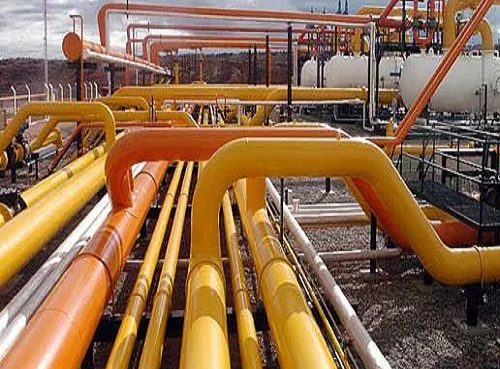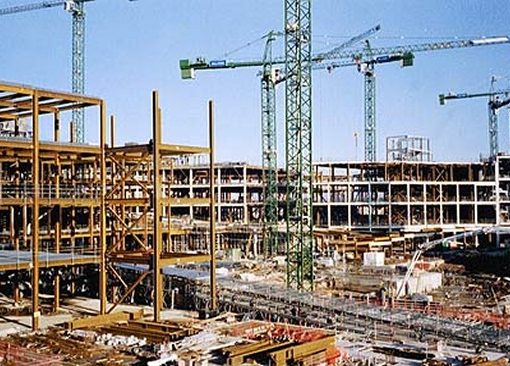Italy has perhaps been the swiftest in the European Union to look south towards Africa in its efforts to wean itself off Russian gas. Western nations are imposing economic and political sanctions on Russia, after it invaded Ukraine in late February 2022. Italy is also the hardest hit, as Russia sells it about 29 billion cubic metres (bcm) of natural gas every year, more than 40 percent of its gas imports requirement.
Replacing Russia as its main gas supplier will be no mean feat. In April 2022, Mario Draghi, the Italian prime minister, signed an agreement with Abdelmadjid Tebboune, Algeria’s president, to buy more natural gas.
Sonatrach, the Algerian state-owned oil firm, which already sells about 21 billion cubic meters (bcm) of natural gas to Italy every year, will sell 9bcm more of gas to Eni, the Italian global oil major, from as early as September 2022.
Italy would still have to source for at least 20bcm of natural gas elsewhere, especially as Algeria will be hardpressed to produce more so quickly. Egypt has already agreed to supply 3bcm of liquefied natural gas (LNG) before end-2022.
Longrunning insecurity in the Sahel is a major constraint on the Nigeria-Algeria gas pipeline, for instance. A relatively more expensive offshore Nigeria-Morocco gas pipeline faces a high threshold to fruition owing to more immediate and cost-effective alternatives
Luigi Di Maio, Italy’s foreign minister, Roberto Cingolani, his counterpart in the ecological transition ministry, and Claudio Descalzi, the chief executive of Eni, went on exploratory trips to Angola and Congo Republic in late April 2022 in an effort to fill the remaining gap.
Italy’s Eni is also aiming to start LNG production from its floating plant in Mozambique before end-2022. For Congo, a new LNG project is planned for launch in 2023 to produce about 4.5bcm a year of LNG. In sum, Italy already has new gas deals with at least five African countries, namely Algeria, Egypt, Libya, Angola, Congo and Mozambique.
Other European countries are on the prowl for African gas as well, visiting similar capitals like their Italian counterparts. Nigeria, which is the fourth largest supply of LNG to Europe, supplying it about 13bcm of LNG in 2021, is also enjoying particular attention. Unlike its North African counterparts, however, Nigeria does not have a gas pipeline to Europe.
Amid a global energy transition agenda hitherto, investors and financiers had been reducing their exposure to oil and gas transactions.
With globalisation in a flux of sorts owing to the Covid-19 pandemic and the Russian invasion of Ukraine thereafter, as China, the backbone of most global value chains, took on an aggressive zero Covid-19 policy, and the West looked to rein in Russia to stall its expansionism and deter China from similarly invading Taiwan in the future, there has been a revision of views on the energy transition, as more exigent considerations like having gas for the winter rise to the front burner.
African LNG producers like Nigeria would need to expand capacity at existing LNG plants and build new ones. Much of the natural gas that international oil companies (IOCs) currently flare would instead be liquefied to LNG for export to a needy Europe. That is, even as many African countries, ample though their natural gas reserves are, do not as yet meet their own domestic gas requirement for power generation, domestic cooking and myriad other uses.
Long-term contracts with EU countries will be key. Qatar is asking for 20-year contracts, for instance. African countries currently being courted should do similarly. Planned gas pipelines to Algeria and Morocco from Nigeria will rest on that long a timeline, even as each has its own idiosyncratic risks.
Longrunning insecurity in the Sahel is a major constraint on the Nigeria-Algeria gas pipeline, for instance. A relatively more expensive offshore Nigeria-Morocco gas pipeline faces a high threshold to fruition owing to more immediate and cost-effective alternatives. LNG shipments are reliable and relatively cost-efficient in the absence of pipelines. Besides, investment in more LNG production capacity is a greater imperative.
Even so, the exigency of the times is fuelling momentum. Together with the Islamic Development Bank and the governments of Nigeria and Morocco, the OPEC Fund for International Development contributed $14.3 million worth of financing to the second phase of the $90.1 million Nigeria-Morocco gas pipeline front end engineering study (FEED) project in March 2022, for instance. The $25 billion 7,000km Nigeria-Morocco pipeline will be an extension of the West African gas pipeline project that already enables the supply of Nigerian gas to Benin, Togoand Ghana, and traverse about 13 West African countries upon completion.
There has also been some progress on the $12 billion 4,128km Nigeria-Algeria gas pipeline, which is expected to pipe 30bcm of gas every year upon completion, as Nigeria and the respective Sahelian governments re-affirmed their commitment to the project at a regional meeting in February 2022. Still, there is much scepticism about how far this will go in light of the intractable security situation in the Sahel region.
Europe has been forced to reassess its energy transition agenda owing to the Russia-Ukraine war and the measures that have been forced on it to prevent another World War. Global banks, which had already started to reduce their exposure to fossil fuel transactions owing to an aggressive green energy drive by the West, have begun to revise their strategies.
Bear in mind, African countries quite literally pleaded that too fast a move to renewable energy would be disruptive to their development prospects, especially as external financing would be required to continue tapping its still abundant oil and gas reserves.
Now all of a sudden, Europe is willing to finance new oil and gas projects? African countries and their Western allies must make the case for a more nuanced and accommodative arrangement on the global net zero carbon emission agenda that allows Africa more time to go green and ample financing to do so comfortably.
Source: businessday










